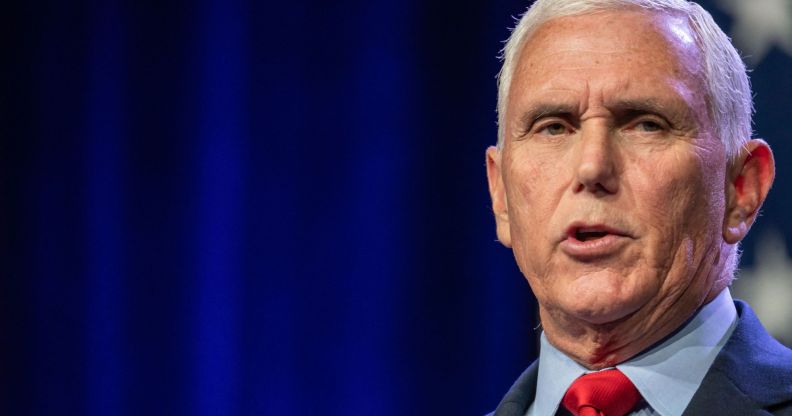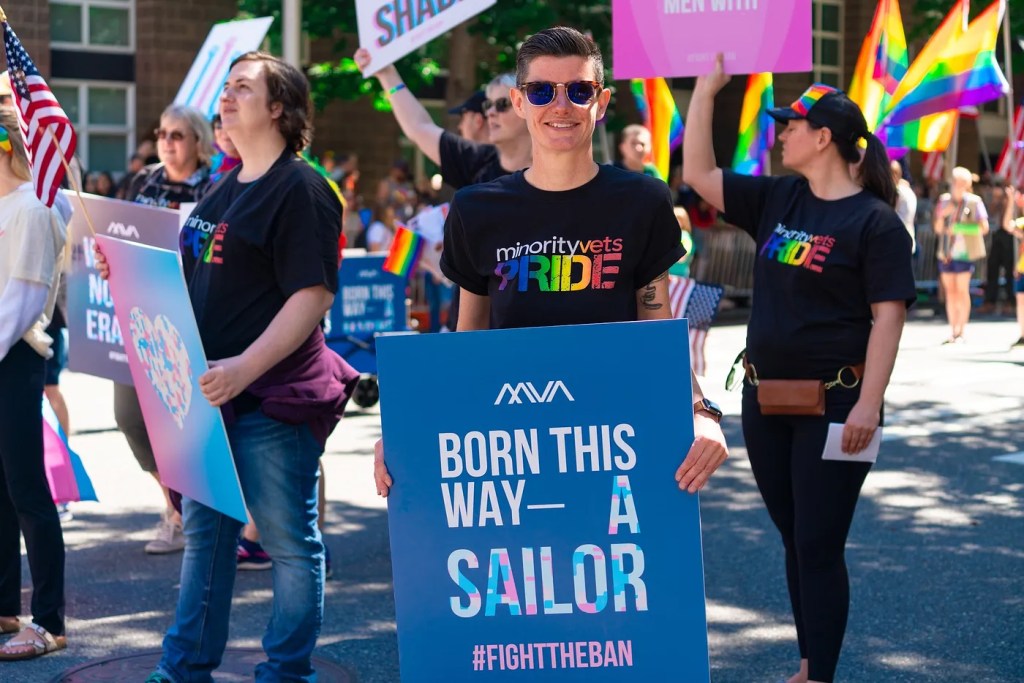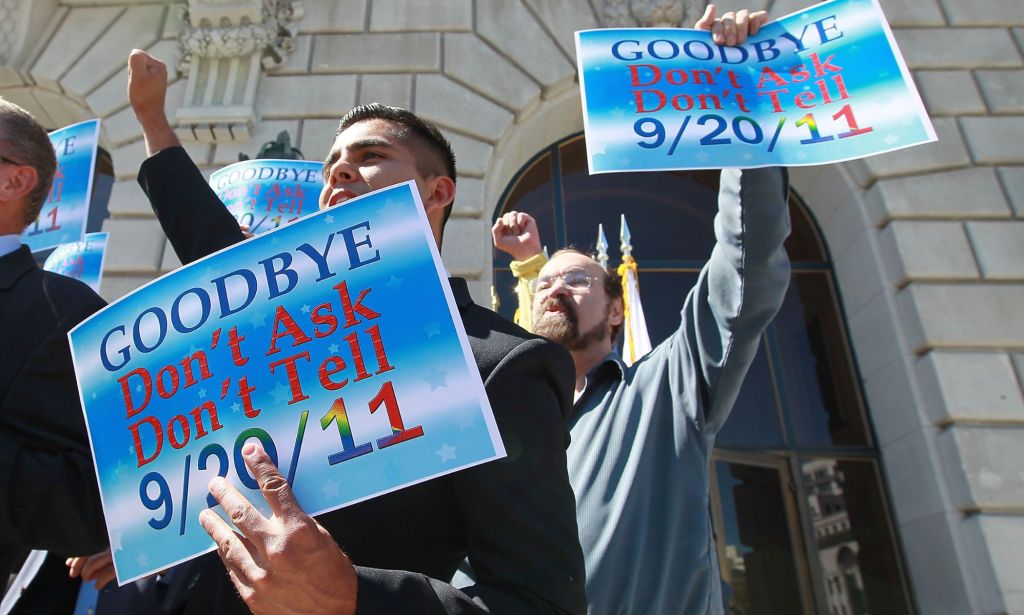Mike Pence trans military ban proposal ‘cruel’ and ‘inhumane’, says non-binary veteran

Republican 2024 presidential candidate Mike Pence has pledged to bring back the trans military ban if elected. (Getty)
The reintroduction of a trans military ban – as suggested by 2024 presidential candidate Mike Pence – would usher in “hell on Earth” for transgender service personnel, a non-binary veteran and activist has said.
On 29 July, Republican Pence said it “makes no sense” to let trans people serve openly in the military because they “[erode] unit cohesion in a unique way”.
The former US vice president was an integral part of the Trump administration that banned trans military personnel from serving openly in 2019 – though the legislation was overturned in 2021.
Having trans people live and serve as their authentic self in the military is just common sense to Lindsay Church, the executive director and co-founder of Minority Veterans of America.
Church is among the approximately 134,000 US veterans who are part of the trans community. An additional 15,500 trans people are currently thought to be serving in the US military, reserves or National Guard – a stark number given the current recruitment crisis facing the armed forces.
The non-binary activist jokes that their family is a “navy family with an air-force problem”.
They are the third generation of the family to serve in the navy, while others joined different branches of the military.
Church planned to join the navy right after high school, but their plans changed in the face of Don’t Ask, Don’t Tell (DADT) – the discriminatory policy, instigated in 1994, that prevented service members from being openly queer without threat of being discharged.
“I came out, that was 2003, and decided I wasn’t gonna go at that time and went and became a queer person,” they tell PinkNews.
“I was a drag king. I wandered around life, but I still felt I was looking for something, a bigger purpose, something to do that meant more.”
In 2008, Church still felt that compulsion to serve and joined the navy.
Serving until 2012, Church was a Persian-Farsi linguist, but didn’t “understand the implications of everything that was happening at the time” under DADT, which was not repealed in full until 2011.

They initially thought it would be “simple enough” to just not tell anybody their sexual orientation or if they were dating anyone. But they realised the discriminatory policy was, in reality, a “hunt” to find and discharge queer service members.
Anti-LGBTQ+ policies, like Don’t Ask, Don’t Tell and the trans military ban, were ‘traumatic’ for queer service members
In 2019, the Trump administration, with Pence as vice president, introduced regulations that prevented trans troops from serving in the nation’s military openly. Under the policy, which was overturned in 2021, any person diagnosed with gender dysphoria and receiving gender-affirming healthcare wouldn’t be allowed to sign up.
Church says that DADT not only persecuted service members because of their sexual orientation but was also effectively a trans ban during the years it was in place.
“Transgender people still could not come out, and it wasn’t [DADT] that was policing,” Church says. “However, there was a conflation of [DADT] and a trans ban.
“I looked a lot like this: androgynous, short hair. I got in trouble a lot for not what was perceived as my sexual orientation, but was actually my gender identity.
“I was told: ‘Seamen Church, you’re gonna be great at being in the military if you find a gay boyfriend, grow out your hair and hide yourself’.
“One of those is my sexual orientation, one of those is my gender identity.
“But nobody was talking about the fact that it was my gender identity that they were berating, so I spent a lot of my military career trying to conform. It was very hard.”

Church described DADT as a “horrible policy”. After leaving the service, it took them “about five years” to realise they were “holding so much trauma” and pain from splintering off parts of their identity to conform while in the navy.
A return to the trans military ban would have a “cruel” impact on LGBTQ+ service members
Reinstating the trans military ban, or another anti-LGBTQ+ policy similar to DADT, will not only affect current queer service members but also future generations – and even the queer children of service personnel using their parent’s benefits.
Survivors of the previous policies lived through “hell on Earth” and Church says it’s disheartening to see Pence hinge his White House bid on such a promise – but also unsurprising.
In February, Florida senator Marco Rubio and representative Jim Banks, both Republicans, introduced legislation in the US house and senate that aims to bring back the trans military ban.
Since the ban was overturned, Church says, the suicide rate of trans service members dropped dramatically.
It’s inhumane to bring back a policy that will lead to the death of service members in the US, they add.
“It’s one thing that military service members join the military, knowing full well we can die anywhere that they send us. But to die Stateside is immoral and inhumane… [politicians] are over here debating whether or not trans people should have the human dignity of being able to serve authentically.
“It’s cruel, inhumane, immoral and wrong, and they’re still going to do it. They refuse to talk about the actual issues that matter to the American people.”
How did this story make you feel?

